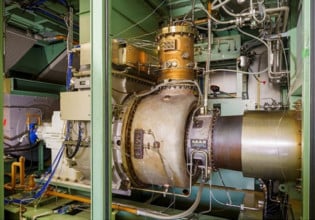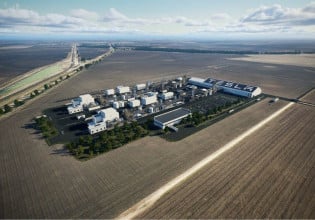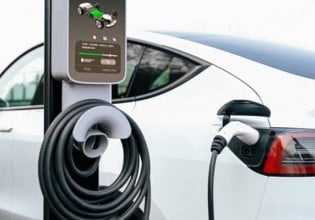BMW, Delphi Automotive Systems Introduce Development Vehicle with Solid Oxide Fuel Cell
BMW (Munich, Germany) and Delphi Automotive Systems (Troy, MI) have unveiled a development vehicle that is equipped with a solid oxide fuel cell (SOFC). The development vehicle uses the SOFC as the key component in an auxiliary power unit (APU), which could generate electrical energy for a wide range of potential vehicle systems and allows for the addition of further electrical features. The SOFC/APU provides sufficient energy for existing mechanically-driven sub-systems, such as the air-conditioning and water pumps, to be driven electrically.
Using a conventional, mechanically-driven generator, supplying 1kW of electricity requires around 1.5 liters of fuel per hundred kilometers. BMW and Delphi Automotive claim that using the SOFC/APU would cause a reduction in fuel requirements of nearly half. The companies are currently working to bring the system to market in a passenger car.
Delphi believes that one use of the APU will be to provide more power than can be reasonably supplied by a battery when the vehicle's engine is switched off. This may be to heat or cool the cabin while the driver is still eating breakfast when stuck in traffic. In commercial vehicles, an APU could be used to run refrigeration units or air-conditioning while the vehicle is parked overnight or stopped for deliveries. Delphi is developing reformers that can convert either diesel or gasoline into hydrogen to fuel the APU.
“This is a major breakthrough technology that will help protect our environment," stated Jose Maria Alapont, president of Delphi's Europe-Africa-Middle East section and a vice president of Delphi Automotive Systems Corp.






